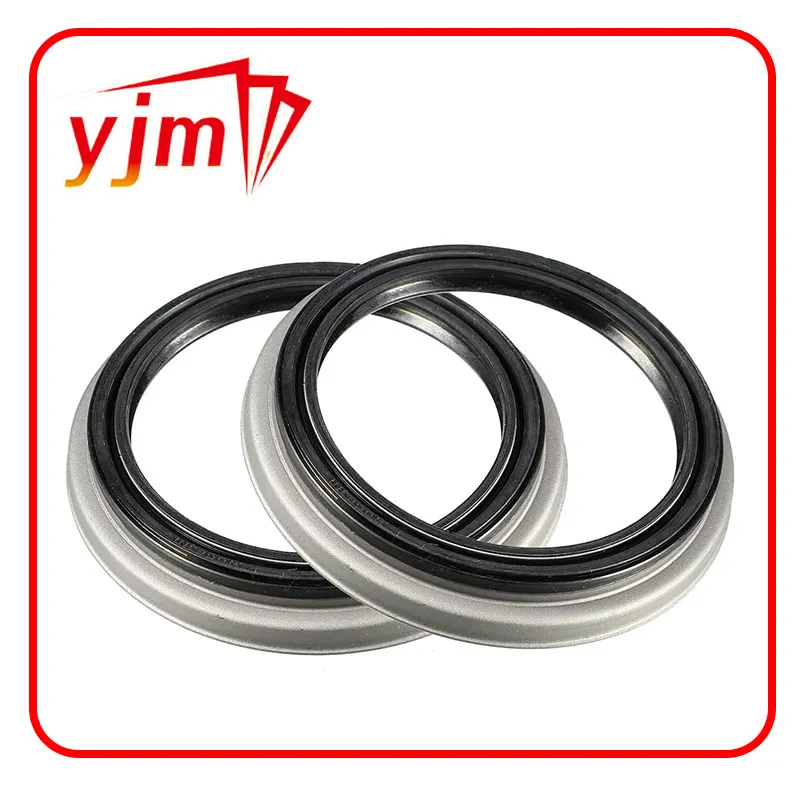Understanding the Role of Torque Converter Oil Seals in Vehicle Performance and Maintenance
Understanding Torque Converter Oil Seals Importance and Maintenance
The torque converter is a vital component of an automatic transmission system in vehicles, facilitating the transfer of power from the engine to the transmission while enabling the vehicle to come to a stop without stalling the engine. One critical component of the torque converter is the oil seal, often overlooked but crucial for the smooth operation of the entire system. This article delves into the role of torque converter oil seals, their importance, common issues, and maintenance practices.
The Role of Torque Converter Oil Seals
Torque converter oil seals function to prevent transmission fluid from leaking out of the converter. They create a barrier that keeps the fluid contained, ensuring that the torque converter operates effectively. The oil seal is designed to withstand high pressures and temperatures, given the demands placed on the torque converter during operation.
The seal is typically located at the front of the converter and is essential for maintaining the proper hydraulic pressure within the system. This pressure is what allows the torque converter to perform its primary function multiplying torque to enhance engine performance, especially during acceleration.
Importance of Proper Functioning
A functioning oil seal is critical for several reasons
1. Fluid Retention The primary function of the oil seal is to prevent fluid leakage. Any loss of transmission fluid can lead to insufficient hydraulic pressure, resulting in poor performance and reduced power transmission.
2. Heat Dissipation Transmission fluid not only lubricates the moving parts within the torque converter but also dissipates heat. A compromised seal can lead to overheating, which accelerates the wear of the components and can cause catastrophic failure.
3. System Efficiency A well-sealed torque converter operates efficiently. Any leaks can result in the system working harder, increasing fuel consumption and affecting the overall performance of the vehicle.
Common Issues and Signs of Failure
torque converter oil seal

Over time, torque converter oil seals can wear out due to various factors, including exposure to heat, friction, and the degrading effects of the transmission fluid itself
. Common issues stemming from a faulty oil seal include- Fluid Leaks The most obvious sign of a failing oil seal is the presence of transmission fluid leaking from the converter. Spotting fluid puddles under the vehicle can indicate a problem with the seal.
- Slipping Transmission As the hydraulic pressure decreases due to fluid loss, drivers may experience slipping or hesitation during acceleration, a clear sign that the torque converter is not functioning efficiently.
- Overheating An increase in transmission temperatures can point to a failing oil seal. If the fluid cannot circulate properly due to leaks, the temperature within the system can rise, leading to serious damage.
Maintenance Practices
To extend the lifespan of the torque converter oil seal and ensure the smooth functioning of the transmission, regular maintenance is essential. Here are a few steps to consider
1. Regular Fluid Checks Periodically check the transmission fluid level and condition. Dark or burnt-smelling fluid can indicate the need for a change or potential issues with the seal.
2. Inspect for Leaks Regularly inspect the area around the torque converter for any signs of fluid leakage. Early detection can save significant repair costs.
3. Professional Inspections Routine inspections by a qualified mechanic can help identify wear on the seals and other related components before they lead to major failures.
4. Replace When Necessary If a fault is detected, it is crucial to replace the oil seal promptly. The cost of replacement is minimal compared to the potential damages from a failing torque converter.
In conclusion, while the torque converter oil seal may seem like a small component, its role in the overall performance and efficiency of a vehicle is paramount. Regular maintenance and timely replacements can help ensure that your vehicle stays in optimal condition, avoiding costly repairs and ensuring a smooth driving experience. Staying vigilant about this small yet vital part of your transmission system can lead to enhanced vehicle performance and longevity.
-
The Ultimate Guide to Car Repair Kits: Tools and Essentials Every Driver Should Own
News Aug.01,2025
-
The Complete Guide to Oil Pan Gaskets: Sealing Engine Leaks the Right Way
News Aug.01,2025
-
Preventing Oil Leaks: A Complete Guide to Oil Pan Gaskets and Drain Seals
News Aug.01,2025
-
Everything You Need to Know About Oil Pan Gaskets and Drain Plug Seals
News Aug.01,2025
-
Essential for Car Owners: How to Use a Car Repair Kit to Deal with Minor Breakdown
News Aug.01,2025
-
Comprehensive Guide to Engine Oil Sump Gaskets and Related Seals
News Aug.01,2025
-
The Ultimate Guide to Boat Propeller Bearings and Trailer Wheel Bearings
News Jul.31,2025
Products categories















